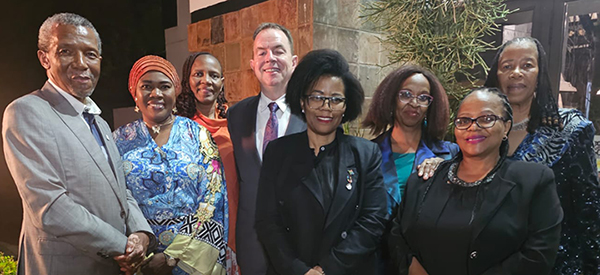Unisa Enhances Partnership with the Commonwealth of Learning
CoL is an Intergovernmental organisation whose mandate is to promote the use of open and distance education knowledge, resources and technologies in institutions in the Commonwealth. In a seminar hosted by Unisa’s College of Education, Scott provided focused insight on advancing open education and fostering innovation in practices, systems and policies.
In his presentation, Scott provided an insightful vision of the future of open education. He emphasised the importance of tailoring educational initiatives to serve not only conventional students, but also marginalised students, including those who are incarcerated, displaced and disadvantaged. This resonated strongly with Unisa’s ethos of inclusivity and accessibility in advancing educational opportunities for all.
The seminar featured key contributions from various academic leaders. In her opening remarks, Prof Thenjiwe Meyiwa, Vice-Principal of Research, Postgraduate Studies, Innovation and Commercialisation at Unisa, emphasised the importance of leveraging technology to reach underserved areas and encouraged participants to engage in open discussions to make education accessible to all. She also acknowledged the role CoL played in shaping global open and distance education. Scott’s presence underscored the seminar’s importance, setting the stage for discussion on educational technologies, AI, and critical thinking between knowledge and competency.
Prof Mpine Makoe, Executive Dean of the College of Education at Unisa, reflected on the institution’s long-standing partnership with the Commonwealth of Learning, which began in the post-apartheid era of South Africa. She highlighted their collaborative efforts in developing distance education programmes and underscored the importance of protecting educational spaces from private sector influence while ensuring quality and social justice.
Complementing this perspective, Scott provided insights on global education trends, emphasising the significance of credit transfer, micro-credentials and the role of AI in addressing the skills gap. He advocated for inclusive educational policies and the use of technology to enhance student support systems, highlighting the necessity of a personalised approach to learning to ensure no student is left behind.
The seminar marked a significant step in global educational transformation, focusing on inclusivity, innovation and effective policy support.

